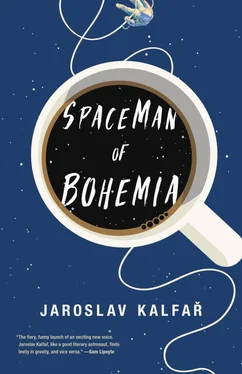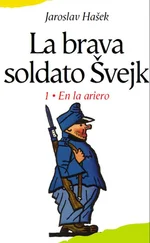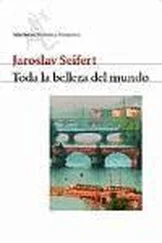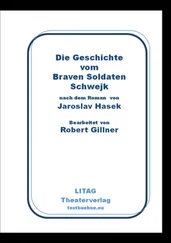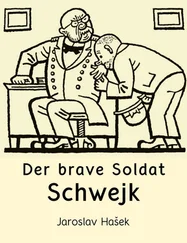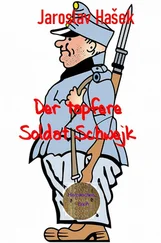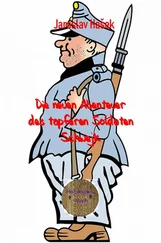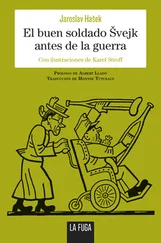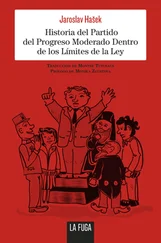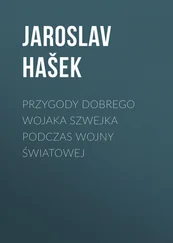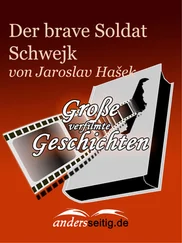Most of the children in the village never liked me—I am a city boy, will always be a city boy, and in this they assume I feel superior to them, with their village roots, though I have always regarded Středa as an equal home to Prague. Now their dislike turns hostile—they shout at me, chase me on their bicycles, and I make sure that I never find myself without adults around. The adults’ hostility is more hidden. When I walk on the main road to buy ice cream, the women’s hellos and how-are-yous are pointed accusations, as if to say that my well-being imposes on theirs. The men, young and old, are quietly aggressive, clenching their fists and flexing their forearms whenever they see me. The only person who does not act differently is my friend Boud’a. We have spent every summer vacation together since we were three, and now he has become my only friend and companion. He never speaks of my parents, doesn’t mention my past. We simply walk to the Riviera, the village’s version of a beach, and swim in the river when all the other children are away. We collect ants in soup cans, we try our first cigarette in the woods.
The rains pass and the world is now hot and inviting, but Grandma stops going to the store every day and Grandpa watches TV instead of going to the pub. Often, I catch him looking at the apartment section in the newspaper, circling places in Prague. He hides the paper when I come near and he won’t talk. I don’t want to think about moving from this house, this home. Though I grew up in Prague, Středa has always been a sanctuary, a place where my mother often smiled, taking me for hour-long walks, a place where my father spoke more, and never about work or politics, a place where no cars pass by at night and one can seek perfect darkness in the fields, away from street lamps and golden bulbs seeping from windows.
It is home, but we are no longer welcome. When my father the hero was lost, my father the nation’s villain came to light. Those morning Elvis songs, mixed with his coffee slurps and the shuffling of newspapers ( The imperialists are killing the poor with drugs, he would scoff), hum in my ears all night and into the morning, forbidding sleep.
THE DISTANCES LIFE TRAVELS to find other life.
From the first prokaryote battling the wild seas of prehistoric Earth to hominids acquiring their first crude tools; from Neanderthals scratching the likeness of their world onto cave walls with red and yellow ochre to the first Russian satellite (weight: eighty-three kilograms) orbiting around Terra and pulsing its exhilarating beeps to Earth’s radios; from the first Soviet phantom spacemen sent by the motherland to die nameless to the first men pinning flags to extraterrestrial surfaces (yes, these glowing rocks now belong to us); from the Hubble telescope photographing the first worlds beyond our own (could they ever be ours?) to the ecstasy of finding life’s greatest bacteria sustainer, H 2O, on the surfaces of planets mercilessly teasing our imaginations; and finally to the first man-made Voyager exiting the cozy luxuries of our very own solar system. Life will always travel to find other life.
And there was me. Jakub Procházka, sole crew member of shuttle JanHus1, who could sweep these discoveries off the table as if they were merely the insignificant crumbs of a bygone era.
It had been six days and eighteen hours since I watched the creature flee. I found comfort in its mind visits, despite their invasiveness—the constant ache around my temples preserved my belief that I would see it again.
Earth was now a shining point deep within the heavens, a home reduced to a unit of punctuation. Once a day, I focused my telescope to remind myself of the blues and whites awaiting me upon my return, a planet willing to sustain me and those I knew. In comparison to these magnifications of my planet, Venus seemed quite dull and every bit as hostile as its never-ending thunderstorms and volcanic explosions, its surface a deceptively still malt of sand and rock. The planet was pale and static when viewed through the thick haze of cloud Chopra, still two weeks away and thus appearing motionless, though daily readings offered proof that the cloud was continuing to collapse on itself.
Every day now, my progress toward the cloud took over the news cycle, and the public relations frenzy over my mission was at its peak. The New York Times ran a six-page profile detailing the actions of my father, the regime’s hero, the betrayer of the people. It was a fine essay on the history of the country (I wondered whether the Times had ever given my country the time of day before) combined with irrelevant and condescending comments on my life as a rags-to-riches boy from a small country with a big country’s moxie. Media outlets all over the world took up the task to describe me to their respective populations as if they were describing a friend. A Norwegian starlet, touring Hollywood for a new major film, declared me her number one celebrity crush. My government PR team—most of whom I had never met, and who looked like they’d just obtained their real estate license—toured Europe to speak about my bravery, the importance of keeping Space exploration alive, and my preference regarding boxers versus briefs. Central forwarded emails from entertainment publicists in bulk, offering to represent me, to sell my life story rights to film producers, biographers, and the occasional desperate novelist.
It wasn’t really so long ago that people had spit on my family’s gate. Now they wanted to exchange money for what that name represented, perhaps offer the role of my father to an up-and-coming serious character actor looking to break into the major awards scene after portraying a series of multilayered, morally ambiguous white men in independent films.
Every day I continued to receive emails from Petr outlining the detailed schedule of tasks to complete before reaching my target. Filter testing, sensor cleaning, a more rigid exercise program to prepare me for possible emergency protocols, video chat events to satisfy the sense of ownership and pride of the taxpayers. I performed these tasks dutifully but without much excitement. All I could think about was the creature, its weight, its voice defying sound waves; or Lenka, Central’s inability to find her, the silence, my resentment building up against her despite my best efforts. The pursuit of Chopra seemed ill-timed, perhaps even no longer worth the time and currency in the face of terrestrial intelligent life. But Chopra was ahead nevertheless, visible and life-altering to Earthlings, while the creature had vanished as quickly as it had appeared, and these mild headaches, the lingering proof of its presence, were beginning to feel self-inflicted. Both Lenka and the creature had abandoned me to my mission. My flesh attended to the menial tasks only with dry professionalism, while my mind wandered everywhere, anywhere, once manic and once passive, a buzzing fly making its way around a bedroom, torn between the freedom promised by sunlight seeping through a window and the endless buffet of crumbs scattered in dark corners.
Six days and eighteen hours after the creature’s disappearance, when I settled into my lounge chair to check email before sleeping off two hours of television interviews, I found an email forwarded by Petr from the ministry of interior. The attachment was a text file titled Lenka P. The text of the email:
A gift from Senator Tůma. State security agent has eyes on Lenka 4 u.
P.
I opened the document.
The subject was first spotted while leaving the city hall building in Plzeň. In comparison to provided photograph #3, contrasts are immediately striking—hair cut short and dyed blood-orange red, some weight loss noted around cheekbones. Subject walked with confidence and a cell phone held to her ear. Phone records show the particular phone call was to her mother. Other calls have been made to a female friend in Prague and a male acquaintance in Plzeň. The male acquaintance will be followed up on shortly for possible involvement. The subject drove to a Hodovna supermarket, where she purchased half a kilo of lean ham, Camembert, three whole wheat rolls, two bottles of Cabernet Sauvignon, and a Bounty bar. It appears that the subject shops for only one meal at a time. The subject’s evening activities were limited to watching reruns of The Simpsons , consumption of purchased goods, and writing in a notebook the agent has not yet been able to access. It is of note that the subject consumed an entire bottle of red wine and smoked seven Marlboro menthol cigarettes before going to sleep. As the agent was asked for light detail, he abstained from observing the subject’s bedroom activities, and did not enter the apartment. A view through the window revealed a neatly arranged living room with little furniture, no pictures or wall art, no books, a television placed upon a cheap table. The leather couch seems to be the only substantial piece of furniture in the house, suggesting the subject is not considering a permanent stay. Surveillance will resume…
Читать дальше
